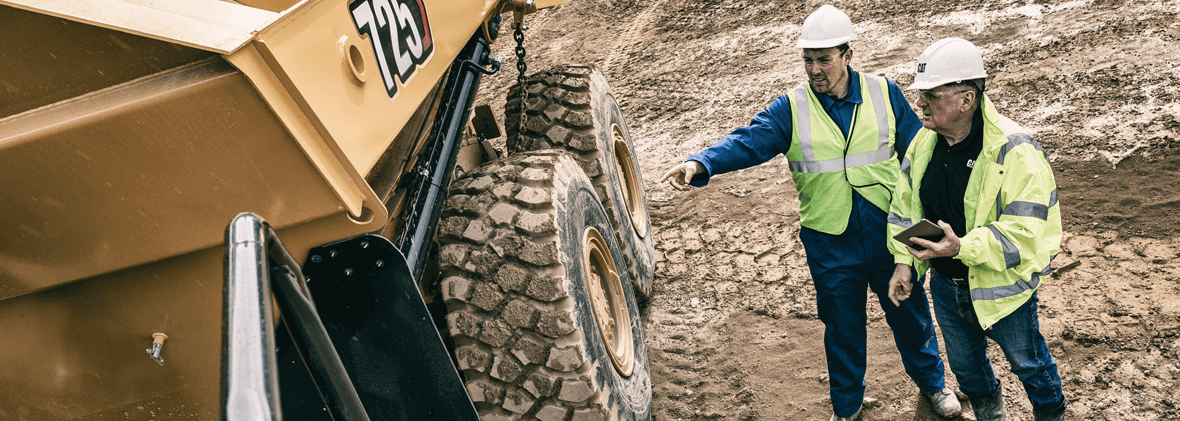
Guide to Long-Term Equipment Rental
Heavy equipment rentals give you the flexibility to get the right machine when you need it. While short-term rentals are useful for one-off jobs, long-term rental agreements can be even more valuable. This guide explains why long-term equipment rentals are a smart choice for many construction businesses.
Why Rent Construction Equipment?
Renting equipment offers convenience, financial flexibility, and reduced responsibility for maintenance and storage. Top reasons to consider long-term rentals include:
- Better cash flow management
- No depreciation concerns
- Dealer-covered maintenance and service
- Ability to try new models before buying
- Lower storage and insurance costs
- Flexibility to swap machines for different jobs
- Access to specialized equipment for new opportunities
Read more about scaling your business with rentals.
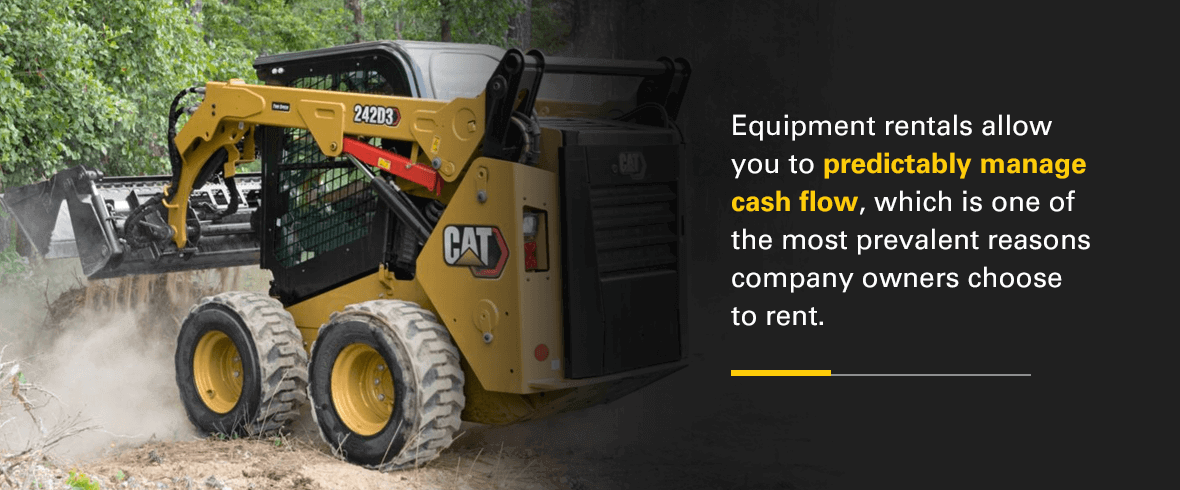
Capital Management and Financial Benefits
Long-term rentals help you manage expenses without tying up capital. Instead of buying machines outright, you can keep cash flow predictable. Rental costs are business expenses, and there may be tax benefits. Consult with an accountant for details. Learn more about financing options.
Servicing and Maintenance
With long-term rentals, maintenance and repairs are handled by the dealer. This reduces downtime, frees your team from service work, and ensures equipment stays in top condition. See how The Cat® Rental Store supports your operations.
Availability and Competitive Edge
Having reliable access to high-quality machines strengthens your competitive position. You can expand services, take on more complex projects, and adapt quickly to urgent or shifting job demands. Read more about the benefits of long-term rentals.
Storage and Insurance Savings
Owning equipment means you need storage space and insurance. Long-term rentals cut those expenses since you return the machine when it is not needed. This saves you from paying for large facilities or dealing with weather-related wear and tear.
Try New Models Before Buying
Long-term rentals let you test new machines before committing to purchase. You can evaluate different models to see which best fits your long-term needs. Explore aerial equipment options here.
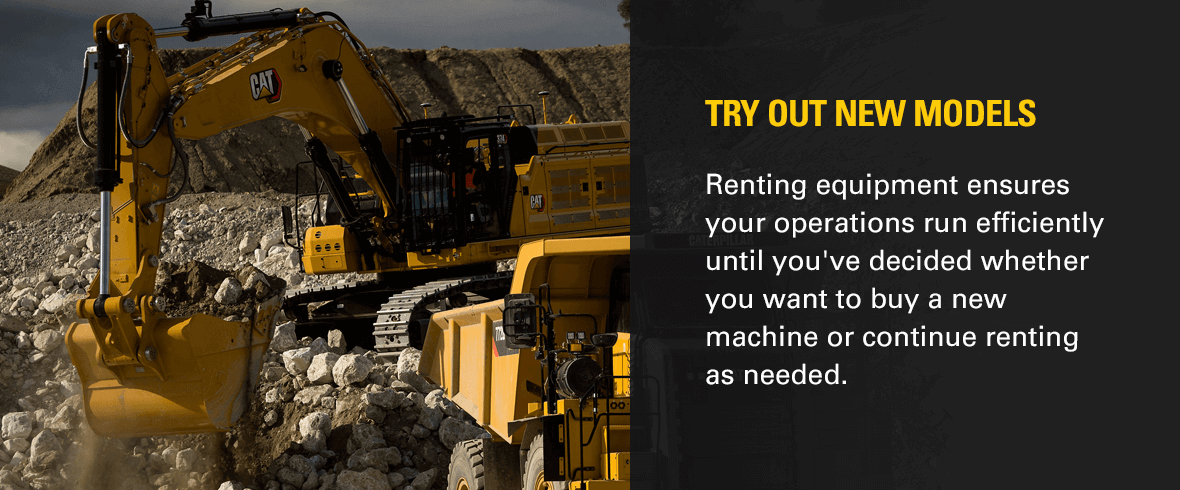
Explore New Opportunities
Specialized rentals allow you to take on projects outside your usual scope. Whether it is a larger earthmoving job or work requiring advanced attachments, you can rent exactly what you need without overinvesting. Browse earthmoving rentals.
Budgeting Advantages
Long-term rentals make budgeting easier by providing predictable costs. Insurance and deposits can be added into the total rental fee. You may also reduce premiums on equipment coverage. Learn more about planning for equipment.
Short-Term vs. Long-Term Rentals
Short-term rentals are good for quick projects, but long-term agreements provide stability. Typically, long-term rentals last from a month to over a year. This ensures equipment is available when you need it and is maintained by the dealer. Read the full long-term rental guide.
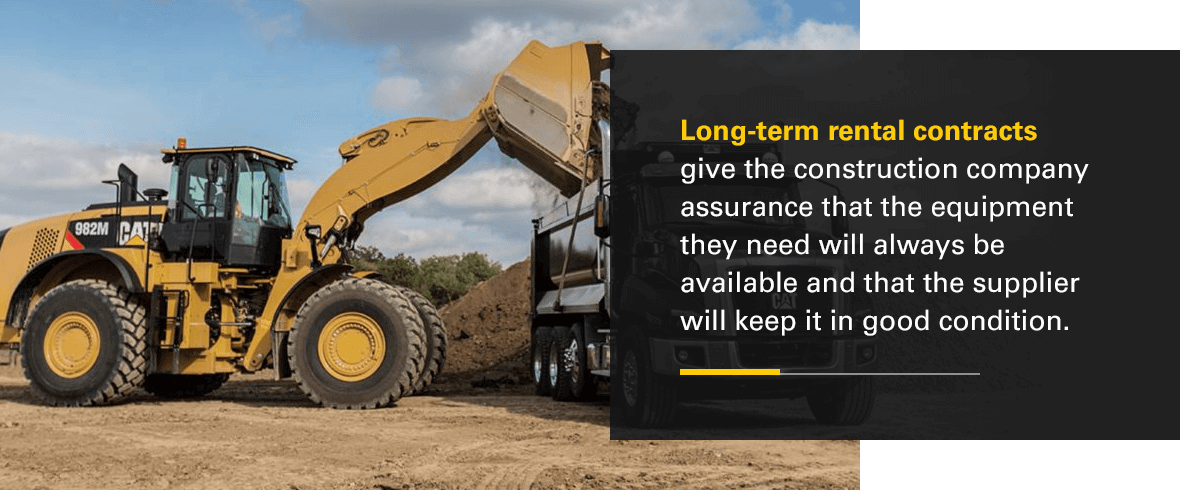
Creating a Business Plan
A successful rental strategy starts with a strong plan. Consider project length, equipment use, industry trends, financial impact, and operator familiarity. Get tips for building a business plan.
Determine the Necessary Equipment
When deciding what to rent, evaluate:
- The machine’s application
- Versatility and ability to use attachments
- Transportation needs
- Lead time to secure equipment in high-demand seasons
See available work tool attachments.
Commit to a Timeline
Set realistic rental timelines that include service dates, training, and buffers for potential project delays. Communicate clearly with your dealer to ensure availability. Review common mistakes to avoid.
Tips for Long-Term Renting
- Provide operator training for safe and efficient use.
- Check equipment specs like weight and height before renting.
- Place rental orders early to guarantee availability.
- Treat rental equipment as if it were your own.
- Communicate changes or concerns with your rental provider.
- Return equipment on time to avoid extra charges.
Common Mistakes to Avoid
- Miscalculating project schedules
- Skipping contract details
- Poor delivery instructions
- Failing to secure insurance coverage
Learn about avoiding rental errors.
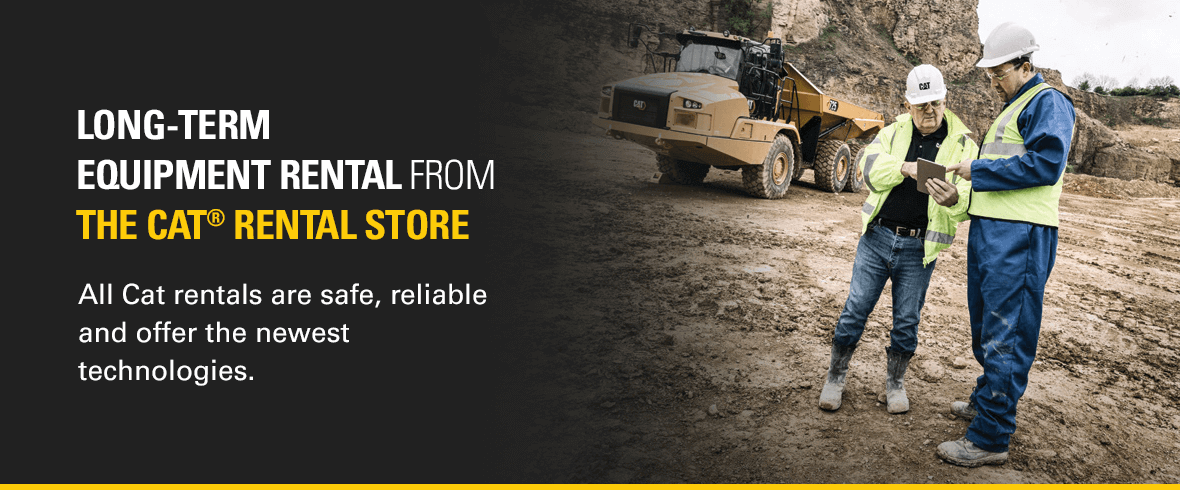
Long-Term Rentals From The Cat® Rental Store
The Cat® Rental Store connects you with dependable machines and support staff across North America. You will find earthmoving equipment, skid steers, compact track loaders, concrete tools, portable air compressors, and more. Explore products.
With over 1,300 locations, expert advice, and flexible agreements, The Cat Rental Store is your partner for long-term equipment rentals. Find a location near you.